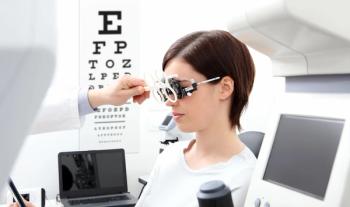
Oxford University tests smart glasses for low vision
Researchers at Oxford University are developing smart glasses to help individuals with limited vision navigate the world around them.
Oxfordshire, UK-Researchers at
The smart glasses consist of a video camera mounted on the frame of the glasses; a pocket-sized computer unit; and software that provides images of near-by objects to a see-through display on the lenses of the glasses. The aim is not to replace lost vision but to assist users with spatial awareness, allowing them to see obstacles in their path.
Researchers say they would like to eventually have a product that looks like a regular pair of eyeglasses and would not cost more than a few hundred pounds.
“The idea of the smart glasses is to give people with poor vision an aid that boosts their awareness of what's around-allowing greater freedom, independence, and confidence to get about, and a much improved quality of life,” says Stephen Hicks, PhD, of the Nuffield Department of Clinical Neurosciences at the University of Oxford, who is leading the development of the glasses.
Researchers plan to test the device with 30 volunteers with poor vision.
Newsletter
Want more insights like this? Subscribe to Optometry Times and get clinical pearls and practice tips delivered straight to your inbox.
















































.png)


